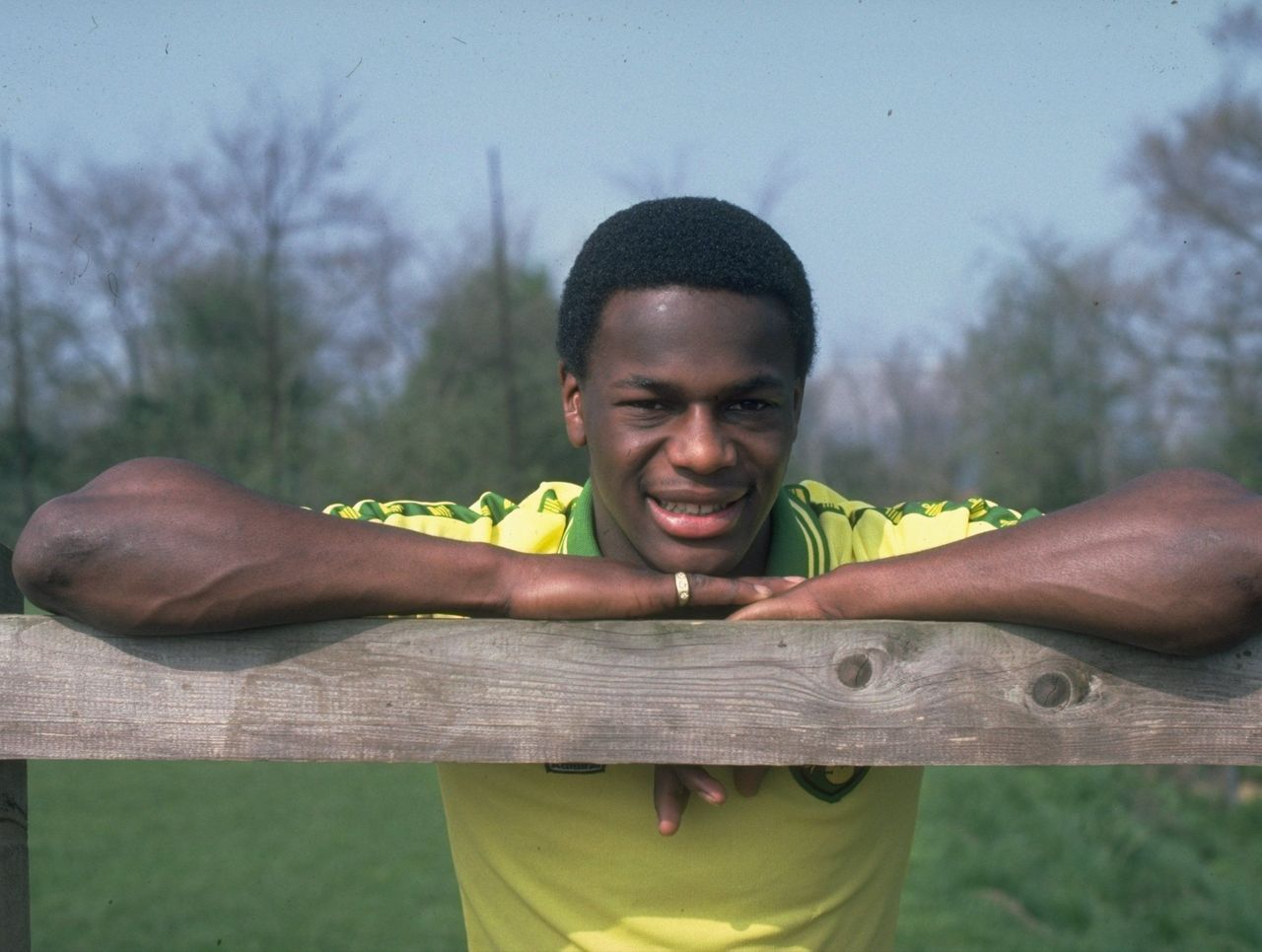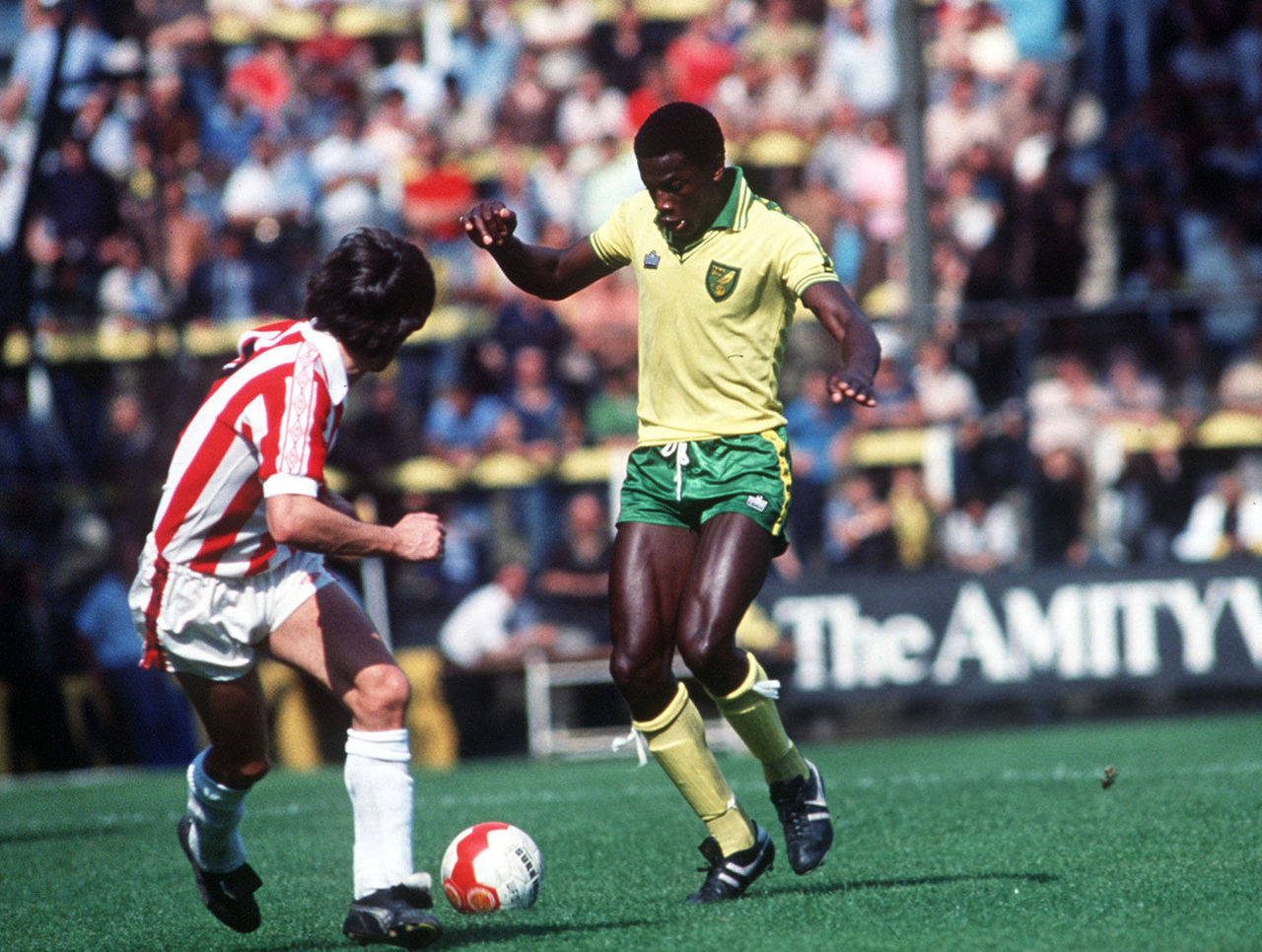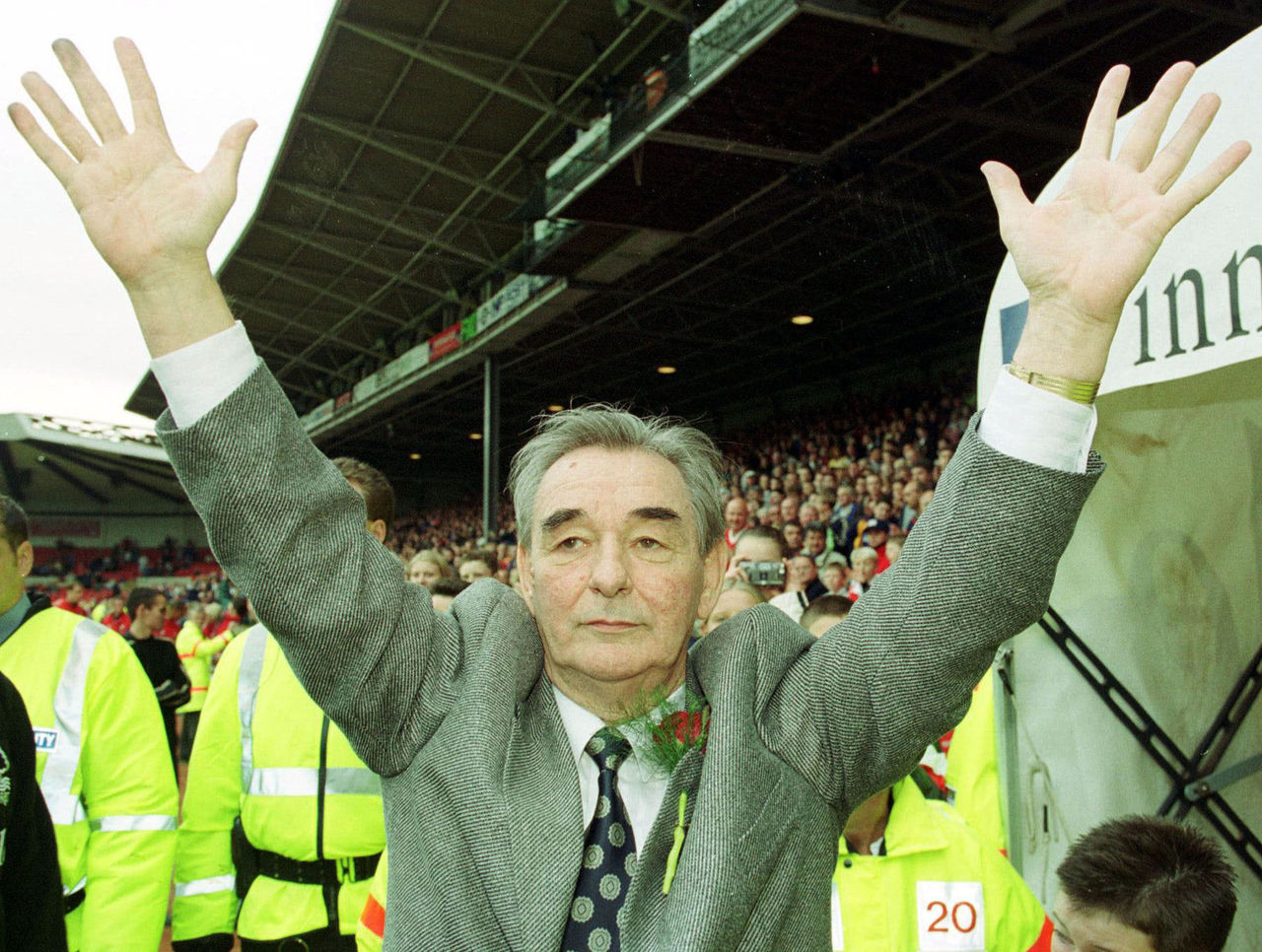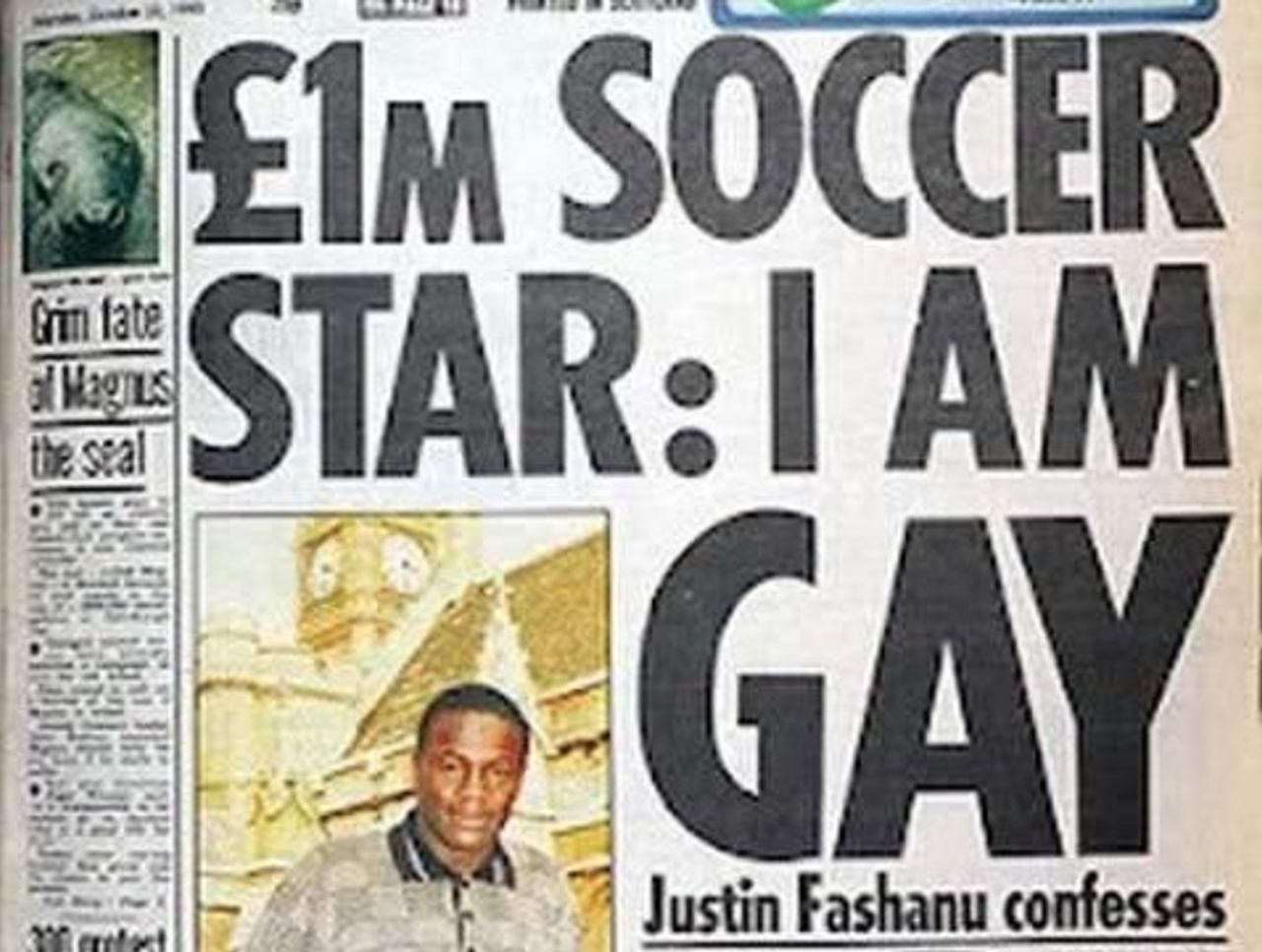Cult Heroes and Club Icons: Justin Fashanu, a career of firsts clouded by hate
theScore's "Cult Heroes and Club Icons" is a weekly feature that examines compelling and engaging stories in the annals of world football.
Football’s first black million-pound player, Justin Fashanu, would have been 55 today.
Instead, he is a symbol of a different era; a time when Margaret Thatcher's England was crippled by prejudice and hate, where black players were routinely booed, and gay players were unheard of.
A once promising career paired with a meteoric rise that became a tale ending in obscure travels and a melancholic suicide shrouded in controversy.
An unconventional upbringing
Born in Hackney, London, to a Nigerian barrister and Guyanese nurse, Justin and his brother one year his junior, John, were shipped off to a foster home when their parents split up.
A year later, Betty and Alfred Jackson took Justin and John, ages 5 and 4, in as foster children outside of Norwich. From the streets of Hackney to the vast plains of fenland and marshland of bucolic Norfolk, the Fashanu brothers were afforded opportunities others in their position were not.
The Jacksons took the boys in as their own, and cultivated the budding talents of the pair, with Justin excelling at a slew of sports including a decorated youth boxing career before opting for football as a schoolboy. Twice a British Amateur Junior Heavyweight finalist ages 14 and 15, Justin was a raw athlete that transcended sport.

Spotted by then-Canaries chief scout Ronnie Brooks at the age of 13, Justin had found his second surrogate father in the renowned Norwich City staffer, who was tasked with keeping an emerging talent in check.
Justin's meteoric rise to prominence in East Anglia coalesced with the common challenges of teenage life.
A promising career is launched
Justin made his senior team debut for Norwich one month shy of his 18th birthday on Jan. 13, 1979.
The coincidence of his first match coming against a Baggies side that was also breaking down the walls of prejudice is of note. A top flight known for blue-collar (see Caucasian) players was transitioning into one of minorities during a time when the country was not ready for such a shift.
West Brom was England's racial trailblazers, starting not one but three prominent black players - Laurie Cunningham, Brendon Batson, and Cyrille Regis - coined the Three Degrees by manager Ron Atkinson.
An epic 5-3 thumping of Manchester United during the 1978-79 campaign highlighted both the good and the bad of football during that time with fans booing the trio and Atkinson addressing the players post-match as "the coloured three up top."
Like Justin Fashanu, Cunningham - notably the first player to be cheered off at Camp Nou while a member of Real Madrid - left well before his time, dying at 33 in a car accident in the Spanish capital the summer of '89 while at Rayo Vallecano.
Fashanu's influence on the game wasn't lost on the budding star.
"The thing that spurns me on is the fact that I'm playing for black people, who maybe have not had as good of a life as I have, who have been living in the ghettos, and who have had the prejudice poured up against them all this time. I think it gives them hope."
Far from the post-millennial wall-to-wall coverage of every Premier League match, the English top flight was routinely covered by two highlight shows, and the exploits of Fashanu's maiden season with the Canaries were mostly localized to Norfolk.
The goal that shook England
Norwich's darling became England's next big thing by virtue of one moment of sheer brilliance on a pockmarked Carrow Road pitch against Liverpool in his second season with the Canaries.
Later crowned BBC Goal of the Season, Fashanu's strike in a 5-3 defeat vaulted him from the fringes of celebrity to the radiant spotlight - an image captured by the cameras at Carrow Road that reflected the arrival of an emerging hero.
On the pitch as was in life, Fashanu pointed a solitary finger in the sky, standing alone before being mobbed by teammates.
Constantly surrounded by the comforts of others but perpetually alone, Fashanu papered over the cracks of a life of conflict with dazzling football displays.
Far from perfect, Fashanu was not immune to the distractions his stardom afforded. Were it not for Ronnie Brooks, it’s impossible to know how far the 19-year-old would have strayed from his tasks.
On the heels of his stunning strike against Liverpool, Fashanu was asked what he wanted in the next 10 years, to which he replied, "I would like to get richer and more famous.
"Being a celebrity at my age you can have one or two rewards, like a nice car, or one or two girls that come my way."
Now a deity in East Anglia, with that stardom came the bounties of luxury and notoriety, tempered with concerns about the distractions.
Interviewed in 1980, Betty Jackson was prescient in saying, "He knows this is a short-term thing. There will come a time when he's a nobody again."

Departure from the comforts of East Anglia
With 103 first-team appearances for Norwich and 40 goals under his belt, Fashanu was sold for £1 million - a record for a black player - to Nottingham Forest a season after Brian Clough's lot had scaled the continental vista for a second time in two tries.
Liverpool's main threat during that era, Forest bought Fashanu from the club that groomed him. He wasn't the first black player to play in England's top flight, but he was the first to play for a big club.
Vile threats, monkey noises, and bananas thrown pitch-side were the norm at the time, but the rise of the likes of Fashanu, Cunningham, and Regis - both domestically and for country - signalled a shift in the English conscious.
During this time, Fashanu's ethnicity began to take a back seat to rumblings about his sexuality.
Desperately in need of a support system, Fashanu would find the opposite at Forest, and as much as it was a symbol of the times, it was a frantic shout for change.
In his autobiography, Clough - widely considered to be one of England's most legendary gaffers - mentions an interaction he had with Fashanu as speculation concerning his sexuality became front page news.

"'Where do you go if you want a loaf of bread?' I asked him. 'A baker's, I suppose. Where do you go if you want a leg of lamb? A butcher's. So why do you keep going to that bloody poof's club?'"
From the heights of European conquest to languishing mid-table, Fashanu was made a scapegoat for Forest's struggles, and was sold for a pittance. Clough later said that he "conned him out a million pounds."
An onerous decline
Brief spells with clubs like Southampton and Leyton Orient were tempered with ones for the likes of the Toronto Blizzard and Airdrieonians, with Fashanu's exit from Nottingham's City Ground and a subsequent serious knee injury at Notts County marking the infantile stages of a protracted downward spiral.
In 1990, Fashanu publicly announced his homosexuality.
He continued his journey as football's first openly gay player in places both renowned and obscure, with moments of exasperation paired with occasions of brilliance. An underwhelming tenure in North America was followed by two seasons of sheer dominance at Torquay United.
It's near impossible to mention Fashanu's ephemeral rise and subsequent decline without noting the influence of his brother, John.
In death as was in life, John played second fiddle to his older brother, with remarks about Justin's decline and death painting the former Wimbledon striker as a stubborn zealot in public denials of his sibling's homosexuality.
Both half the person and a fraction of the player his brother was, John did little to help Justin's legacy posthumously.
Justin Fashanu was not a perfect man. He was sacked by Scottish side Hearts for attempts at selling false stories about liaisons with cabinet ministers to the press and allegedly sexually assaulted a 17-year-old male in Maryland in 1998. Homosexual acts were then illegal in the state of Maryland.

Those allegations - which he denied until his death and in a suicide note found next to his dead body, claiming the sex was consensual - shrouded the later years of Fashanu's life
Fearing for his freedom and the threat of an unfair trial, Fashanu fled to England in March 1998.
A month later, not far from where a promising life started in Hackney, it ended in a deserted storage unit in Shoreditch where his lifeless body was found hanged.
Constantly surrounded by others, but endlessly alone, Justin Fashanu's life is forever remembered as a tale of sorrow and wasted talent.
Football's first million-pound black player was also football's first openly gay player, and for all the narratives those provide, above all, Justin Fashanu should be remembered as one of his generation's most adept and talented footballers.